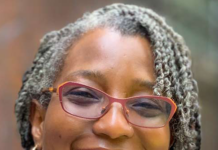 According to a new study led by scholars New York University, Black adolescent boys who are stopped by police report more frequent engagement in delinquent behavior thereafter. The research also demonstrates that police stops have a negative impact on these adolescents’ psychological well-being.
According to a new study led by scholars New York University, Black adolescent boys who are stopped by police report more frequent engagement in delinquent behavior thereafter. The research also demonstrates that police stops have a negative impact on these adolescents’ psychological well-being.
Police agencies across the country have sought out to reduce crimes by shifting to what is known as “proactive policing” – deploying officers to places where crime is likely to be reported and to engage with people most likely to be accused of those crimes. Some previous research suggests that proactive policing is associated with reduced crime, but the same research also acknowledges that this policing can negatively affect the public legitimacy of law enforcement and even push people to avoid law-related officials altogether. The new study is unique in that in addresses the negative effects of this policing on racial disparities and youth criminality.
For their study, the researchers recruited boys from six public schools in high-intensity policing neighborhoods and observed their encounters with law enforcement over the next two years. All boys were equally susceptible to police stops and encounters, regardless of their prior engagement with delinquency.
The research found that the more often a boy was stopped by the police, the more frequent his engagement with criminal behavior was six, 12, and 18 months later. Past criminal behavior did not predict more police encounters. Additionally, the relationship between police stops and subsequent delinquency was partially mediated by psychological distress. The younger a boy was the first time he was stopped, the greater the increase in subsequent delinquent behavior six months later.
“Our findings indicate that the single most common proactive policing strategy – directing officers to make contact with individual boys and young men in ‘high crime’ areas – may impose a terrible cost on Black and Latino youth across the country,” says study lead author Juan Del Toro, a doctoral candidate in NYU’s department of applied psychology. “Police stops are associated with harmful outcomes including subsequent delinquent behavior and psychological distress that may be even more harmful when they occur earlier in boys’ lives. These consequences warrant urgent attention from social scientists and policymakers.”
The full study, “The Criminogenic and Psychological Effects of Police Stops on Adolescent Black and Latino Boys,” was published in the Proceedings of the National Academy of Sciences of the United States of America. It may be accessed here.












